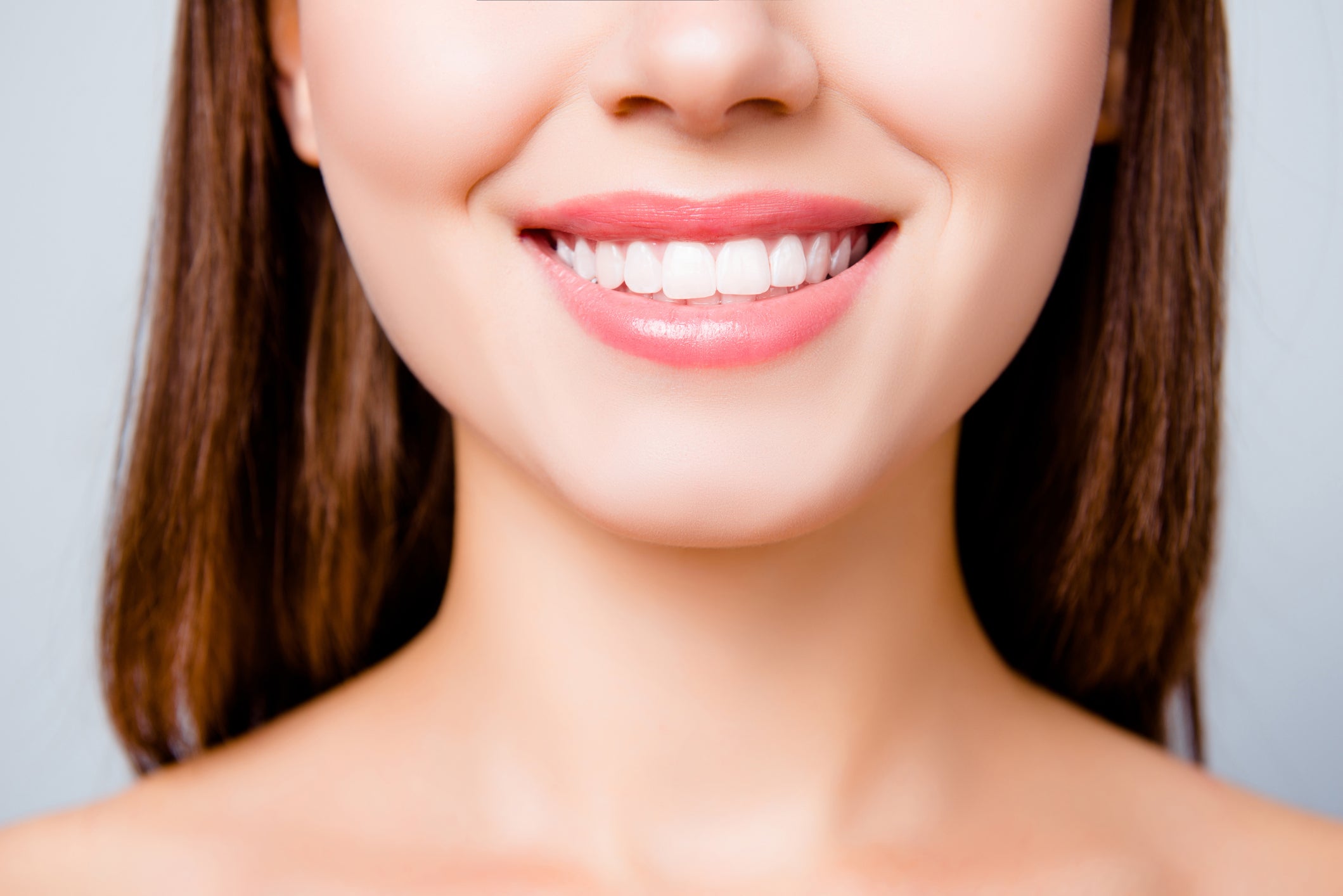-
How to Care for Yourself After a Dental Procedure

Root canals, tooth extractions, and dental implants are common smile restorations that require some recovery time. Choosing an experienced oral surgeon is the first step toward ensuring a comfortable recovery.
At Park 56 Dental, we offer sedation dentistry to make your time in the dentist’s chair as comfortable as possible. We also review the recommended aftercare with you before you undergo any procedure, so you know exactly what to expect during your recovery. And if you have any urgent questions for us, rest assured that we answer emergency calls 24 hours a day.
Here are some general aftercare tips we recommend to take care of yourself after a dental procedure.
- Take it easy: Take time off school or work and rest at home. Avoid physical exertion for two to three days, and keep your head propped up with pillows to reduce inflammation.
- Apply ice packs: Ice helps to numb any localized pain and brings the swelling down. Throughout the first recovery day, apply a towel-wrapped ice pack for 15 minutes on, 15 minutes off.
- Leave gauze pads in place: Wait for three or four hours to remove any gauze pads your oral surgeon put in your mouth. This helps minimize bleeding and helps the surgical area clot properly.
- Eat soft food: Stick to a liquid or soft-food diet for a few days. Chilled soup, mashed potatoes, scrambled eggs, yogurt, smoothies, milkshakes, and ice cream are all good options.
- Avoid hot foods and drinks: Wait until the local anesthesia wears off completely to eat or drink anything hot so you don’t accidentally burn your tongue or the roof of your mouth.
- Don’t drink through a straw: Suction in the mouth can dislodge the blood clot from the treated area, leading to a painful condition called dry socket. To prevent this, don’t drink from a straw for three days after oral surgery.
- Take medication: Over-the-counter pain relievers can help make your recovery more comfortable. If your oral surgeon prescribes antibiotics, take those as directed as well.
- Rinse with salt water: 24 hours after your procedure, rinse gently with warm saltwater. A good ratio is one-half teaspoon salt per one-half cup of water. Rinse after every meal and snack to help remove food particles from around the surgical area.
- Brush carefully: Avoid brushing the treated area until it has fully healed, but continue to brush the rest of your teeth.
- Don’t smoke or drink alcohol: These habits can interfere with the healing process, so avoid them for at least 24 hours. Better yet, quit smoking and always limit your alcohol intake to improve your overall health.
If you’re looking for skilled dental care and oral surgery in NYC, you’ve come to the right place. Park 56 Dental has been voted NYC’s best dentist, so why would you go anywhere else for your next dental procedure? To learn more about our services, please call us at (212) 826-2322 or contact us online today.
-
How to Prevent Gum Recession

Receding gums are a common oral health problem. You know your gums are receding if you have less gum tissue than you used to and your teeth look longer than normal. What you’re seeing is the exposed tooth root, which may be sensitive to hot and cold temperatures. Gum tissue doesn’t grow back, so it’s important to prevent gum recession before it’s too late.
- Brush your teeth gently: It’s a misconception that the more aggressively you brush, the cleaner your teeth become. Not only does vigorous brushing wear down tooth enamel, but it also irritates your gums. Switch to a soft-bristled toothbrush, and be careful about how much pressure you use when brushing each morning and night.
- Floss daily: Flossing targets the hard-to-reach places between your teeth and along the gum line. Scraping away plaque and stubborn food particles from these areas is critical to keep your gums healthy and prevent them from receding.
- Stop smoking: Tobacco use of any kind is horrible for your oral health. It leaves a sticky film in your mouth that can cause gum recession if not removed thoroughly. Stop smoking to promote gum health, prevent tooth stains, and reduce the risk of oral cancer.
- Eat a nutritious diet: Gum tissue, like the rest of your body, needs adequate vitamins and minerals for optimum health. Some of the best foods for a healthy smile include apples, carrots, leafy greens, plain yogurt, and almonds.
- Wear a mouthguard: Do you grind your teeth at night? If you’re not sure, your dentist can diagnose this condition, known as bruxism. Then, you can look into getting a custom mouthguard to protect your teeth and gums while you sleep.
- Straighten your smile: Crooked teeth and a misaligned bite place excess pressure on your jawbone and gums, making gum recession more likely. Invisalign is the invisible way to straighten your teeth and keep your gums healthy.
- Avoid mouth piercings: Lip and tongue rings are a surefire way to irritate your gums and cause them to recede. So play it safe and stick to ear piercings to keep your mouth free of foreign objects.
- Visit the dentist: The American Dental Association recommends that most people visit the dentist every six months for a checkup and cleaning. During your exam, a hygienist will remove tartar and plaque from your teeth that can irritate the gums. Your dentist will also check for signs of recession and offer personalized tips to prevent the problem from getting any worse.
If you notice receding gums or other signs of gum disease, reach out to Park 56 Dental. We’ve been voted the best dentist in NYC, so you can rest assured that our team will take great care of you. We offer effective treatments to help slow or even reverse gum disease and recession, including root planing and scaling, flap surgery, and bone and tissue grafts. To learn more, please call us at (212) 826-2322 or contact us online today.
-
Why Should You See a Cosmetic Dentist?

Are you unhappy with your teeth? If you find yourself covering your mouth when you laugh and smiling with closed lips for photos, you could benefit from seeing a cosmetic dentist. While general dentistry aims to preserve oral health, a cosmetic dentist focuses on improving the way your smile looks and feels. Here are the top reasons to see a cosmetic dentist.
- Yellow, stained teeth: Years of eating and drinking tooth-staining foods and beverages can leave your teeth looking yellow and dull. Fortunately, extrinsic stains like these are easy to remove with Zoom!® in-office whitening. In less than an hour, your teeth will be several shades whiter. Use at-home whitening products between visits to help your look last as long as possible.
- Discoloration: Intrinsic tooth discoloration can’t be corrected with whitening. Fortunately, you still have options! Veneers, or tooth-colored shells adhered to the front of your teeth, may be the best choice for giving your smile a bright new look.
- Uneven teeth: If your teeth have worn unevenly, they may now appear pointy, jagged, or misshapen. They may even be different sizes or lengths. Tooth reshaping/contouring is the cosmetic dentistry solution to this problem. With a specially designed tool, the dentist can gently reshape your uneven teeth for a more aesthetically pleasing smile.
- Missing teeth: Whether you had an infected tooth extracted or a traumatic injury left you with a gap in your smile, you can fill the hole with dental bridges or implants. A bridge anchors to dental crowns installed on the two adjacent teeth, while implants are self-supporting fixtures that mount directly to your jawbone.
- Broken, chipped, or fractured tooth: When a tooth is damaged, it’s important to act quickly to save it. Your options include dental crowns, veneers, and bonding (applying composite resin to the surface of the tooth to repair it).
- Cavities: Tooth decay can lead to cavities, which require a filling. If you currently have amalgam (metal) fillings, you can replace them with tooth-colored fillings made of composite or porcelain. This way, you can smile as wide as you want without anyone noticing your dental restorations.
- Crooked teeth: If you want a straighter smile, but you don’t want metal braces, consider what Invisalign® has to offer! The clear, plastic aligners are virtually invisible, gradually shifting your teeth into the desired position without anyone even knowing you have braces.
- Gummy smile: Excess gum tissue can affect your self-confidence and discourage you from smiling. Luckily, this condition is treatable using techniques such as dental crown lengthening, orthodontics, and oral surgery.
If you’re ready to enhance your smile, visit Park 56 Dental, the best cosmetic dentist in New York. We provide an array of personalized treatments designed to restore your self-confidence, many of which can be completed in one office visit. For more information about cosmetic dentistry, or to schedule a free consultation, please call us at (212) 826-2322 or contact us online today.
-
10 Ways to Prevent Tooth Enamel Loss

Enamel is the semi-transparent outer layer of your teeth that protects the more sensitive dentin and pulp beneath from the acids, chemicals, and temperature extremes your mouth endures when you eat and drink. Even though enamel is the hardest substance in the human body, daily wear and tear can eventually cause the surface of your teeth to wear away. Once you lose tooth enamel, it’s gone for good, so it’s important to do everything you can to protect it! Here’s how.
- Limit acidic foods and drinks: When you eat anything acidic, your tooth enamel softens temporarily and loses some of its mineral content. Your saliva slowly balances out the acidity in your mouth, but if this acid attack happens too often, your mouth may not have time to repair itself before some enamel is brushed away. To prevent this, cut back on alcohol, coffee, tea, soda, sports drinks, tomato sauce, and sour candy.
- Eat less sugar: The bacteria in your mouth feed on sugar, producing acid as a byproduct. This is why juice, candy, and other sweet foods are so bad for your teeth.
- Finish your meal with dairy: Enjoying a glass of milk or a piece of cheese at the end of your meal helps rebalance the acidic pH in your mouth.
- Rinse immediately: If you have a hankering for something sweet or acidic, reduce the damage by rinsing your mouth with water once you finish eating.
- Chew sugar-free gum after meals: Chewing gum stimulates saliva flow, which helps remineralize your enamel. Plus, mint gum freshens your breath, making it a win-win.
- Wait an hour to brush: It may sound counterintuitive, but you shouldn’t brush your teeth right after eating. This is when your enamel is weakest, so wait until it has time to harden again before brushing.
- Brush gently: Unless your dentist recommends otherwise, use a soft-bristled toothbrush. Then, brush gently to remove food particles and plaque without scrubbing enamel away.
- Brush with fluoride toothpaste: Fluoride has the amazing ability to remineralize your teeth, strengthening enamel in the process. That’s why it’s so important to use fluoride toothpaste and mouthwash.
- Wear a mouthguard: Nighttime tooth grinding can wear down your enamel. Ask your dentist about getting a custom mouthguard to protect your teeth while you sleep.
- Work with your dentist: Ultimately, the best way to keep your enamel intact is to visit the dentist regularly. A dental professional can spot early signs of erosion and recommend fluoride treatments, prescription toothpaste, and other personalized solutions to help you preserve your smile.
Ready to team up with the best dentist in New York? Look no further than Park 56 Dental! We can help you prevent tooth enamel loss and recommend dental restorations if your smile needs a boost. All the while, you’ll enjoy personalized, quality dental care in a spa-like environment. To get started, please call us at (212) 826-2322 or contact us online to request your free consultation.
RECENT POSTS
categories
- Uncategorized
- Cosmetic Dentistry
- Veneers
- Healthier Teeth
- Teeth Whitening
- Dental Health
- Video
- Dental Emergencies
- Invisalign
- Dental Implants
- Root Canal
- Sedation Dentistry
- Infographic
- Dental Crowns and Bridges
- Dental Anxiety
- Gum Disease
- COVID-19
- Bad Breath
- New York Dentist
- Cut out sugar
- General Dentistry
- Oral Health
- Oral Cancer
- Dry Mouth
- Gum Health
- Toothache
- Dental Sealants
- Cavities
